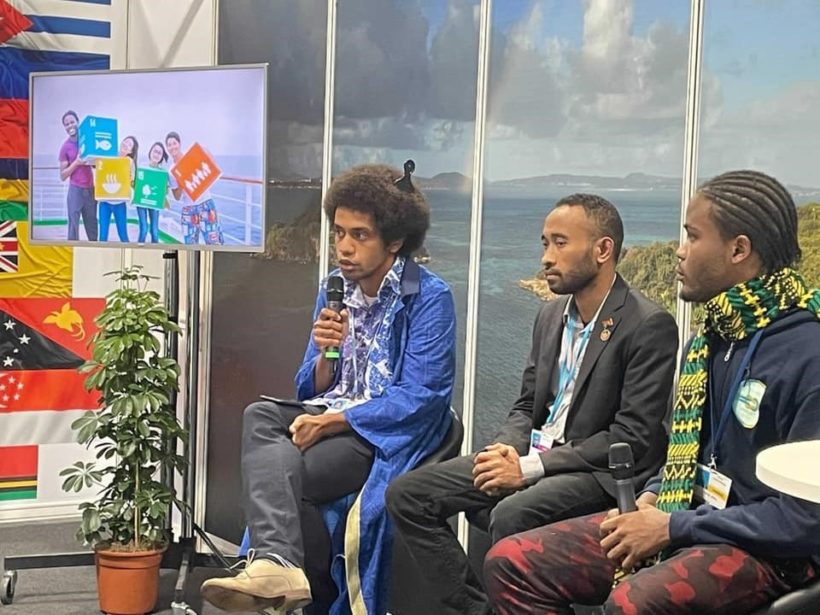Inside and outside the “Blue Zone,” where the official COP26 proceedings are taking place, young people have stepped forward to highlight the effects that climate change has had on their lives, their communities, and their vision for the future.
While much media attention has been focused on government officials inside the Blue Zone, countless fringe events have taken place in locations around Glasgow. One such outside event, open to the public and COP26 delegates alike, took place earlier this week at the Extreme Hangout, a boat on the River Clyde that has been transformed into a meeting and presentation space. The space has been designed during COP26 to give young people from around the world a platform to make their voices heard.
Last year, the YMCA invested $250,000 in supporting 35 youth-led climate change solutions around the world, and just announced a further $150,000 commitment. Three young YMCA ambassadors who have been a part of this program were on the stage in Glasgow to share their projects and their thoughts about current political efforts to address the climate crisis.
The presenters were quick to point out that the YMCA did not just invest financially in their solution projects; they also provide mentorship, help bring people to the table, and present opportunities to elevate their projects.
Rebecca Nkunde is a secondary school teacher in Zambia. She educates her students about climate change, and has had great success in engaging them in projects to improve their local environment. At the age of 31, Rebecca is already deeply committed to inspiring and empowering the generation younger than her. “Don’t neglect the people who are going to carry on the dream,” Rebecca said.
Rodrigo Puntriano Mendoza, 25, is from Peru, where he works with remote communities to improve their quality of life. Rodrigo deeply believes in the power of youth to solve our world’s biggest problems. He said, “If we had invested in youth-led solutions to climate change long ago, we would not be here in Glasgow right now, because we wouldn’t need COP. Investing in youth-led solutions is what is going to get us out of this.”
Shakil Karim, 30, is a Ph.D. student in London studying climate finance. In a recent blog post for the YMCA, he wrote, “YMCA has provided each of its young people with access and opportunity to represent everything we can, but doing so during a global pandemic that dramatizes inequity is no easy feat. But we’re here – we made it – and yet on arrival at this world event, discussing solutions about our future, we find ourselves blocked. Our access is limited and our voice diluted. If we find it this hard what about others with less agency?”
On 11 November, inside the Blue Zone, Peace Boat, hosted a discussion at the Association of Small Island States’ (AOSIS) pavilion, featuring three young climate activists from island countries on the front line of the climate crisis, as well as representatives from the Republic of Palau, Sustainable Ocean Alliance, and Blue Planet Alliance. Island nations are experiencing severe impacts from climate change already, with rising sea levels and more severe storms frequently flooding their land. Kim Allen, a youth development practitioner from Papua New Guinea, pointed out that one often overlooked effect of this flooding is saltwater overtaking drinking water wells, which are frequently already in short supply.
Epeli Lalagavesi, a young person from Fiji, represents the Alliance for Future Generations. He told a story about a traditional type of canoe in Fiji, The Vaka, in which the older community members sit in the back and row, propelling the boat forward. The younger people sit in the front, navigating and guiding the boat in the right direction. “That,” Epeli said, “should be the way forward. Youths in the front navigating us forward.”












